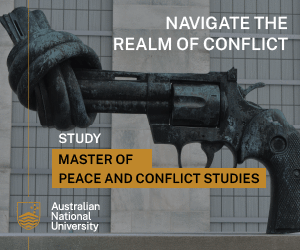Was nationalism the primary cause of the wars in the former Yugoslavia?
The wars in the former state of Yugoslavia that endured for most of the 1990’s have an established legacy today. They have come to be seen by those in the West as a gritty, difficult and unpleasant series of conflicts, epitomised by horrific brutality perpetrated by ultra-nationalist thugs. Nationalism was a major feature of the wars as they were prosecuted, but not the primary cause of the Yugoslav wars. The answer is less clear-cut than it may seem.
Food ‘Security’: the need for a new framework for analysis
The last global food crisis of 2007-08 should have jolted policymakers across the globe into examining more closely the root causes and consequences of such crises at the local, regional and global levels. In 2011, global food prices have once again returned to make alarming headlines and analysts far and wide are arguing that we stand at the threshold of yet another global food crisis.
Transnational Labour Migration and the International Sex Trade
The sex trade has been overlooked in migration studies, often only appearing in criminological or gender studies.
The Reflectivist Critique of Positivist IR Theory
The critique of positivism is fundamentally epistemological. Each side makes compelling arguments showing the strength of their position.
Why is the Maastricht Treaty considered to be so significant?
The Treaty of Maastricht elaborated and implemented concepts discussed in the previous Single European Act of 1986. It also established the European Monetary Union (EMU) and the Treaty on European Union (TEU) which lead to the construction of the main pillars of the European Union and the introduction of the single currency.
Waever’s assessment of neo-neo synthesis and its validity in the neo-neo debate
The convergence of neo-realism and neo-liberalism is self-evident from the fact that scholars of the two great schools, in addition to sharing a set of fundamental assumptions, ended up having the same central theme of reflection: how to assess, in a situation of anarchy, the effects that international structure have on the behaviour of states.
Water wars? The Role of Hegemony in the Jordan River, Nile River and Columbia River Basins
Predictions of “water wars” have become an important and even customary part of global diplomatic discourse. In 1995, the World Bank’s vice president for environmentally sustainable development famously asserted “if the wars of this century were fought over oil, the wars of the next century will be fought over water”. What is the truth about transboundary water and the potential for war?
Do democratic states have a negotiating advantage?
Authoritarian regimes benefit from the constraints of democratic states, who cannot act in a similar way as authoritarian states do. These constraints are the result of democratic freedom which is essential to democratic success but which can be a disadvantage when dealing with coercion. All the same, it is democratic states that have the long-term and ultimate advantage over authoritarian regimes
Sudan, Terrorism, and the Obama Administration
Terror in the west of Sudan is far from concluded. Following the celebration of an apparently successful referendum for South Sudan, we should not forget the deals the Obama administration was obliged to cut so that voting could take place as scheduled, and what further deals will be required going forward to ensure the secession vote is respected by the Khartoum regime.
Wolfgang Friedmann and the Major Developments in International Law: 1945-1964
In the “Changing Structure of International Law” Friedmann begins by considering the main changes that have taken place in international law: its vertical extension to new fields such as economic collaboration and welfare, its horizontal expansion to take in all the civilizations and cultures of the world as well as the influence of various ideologies.












